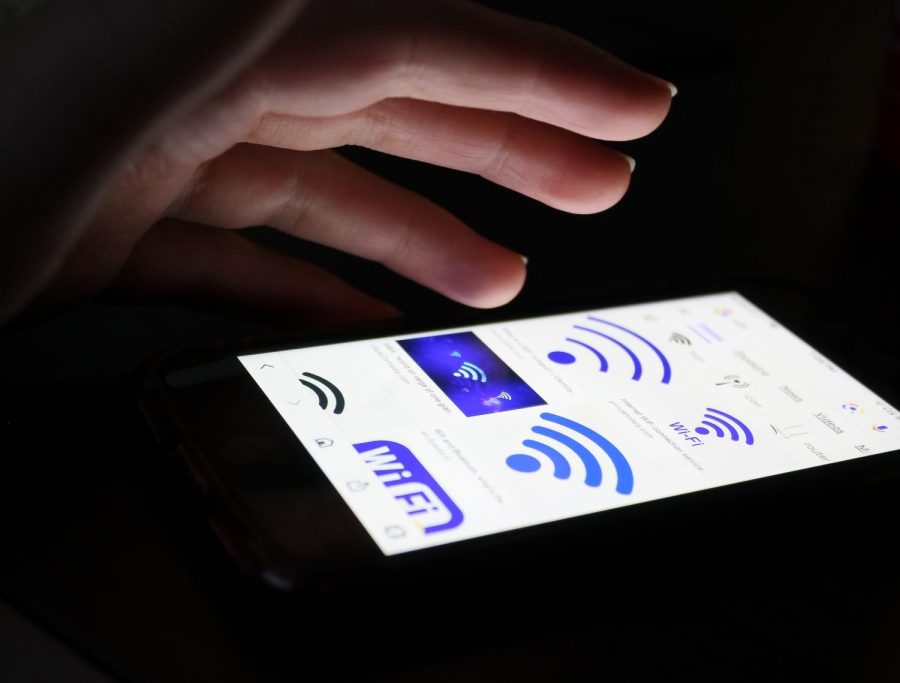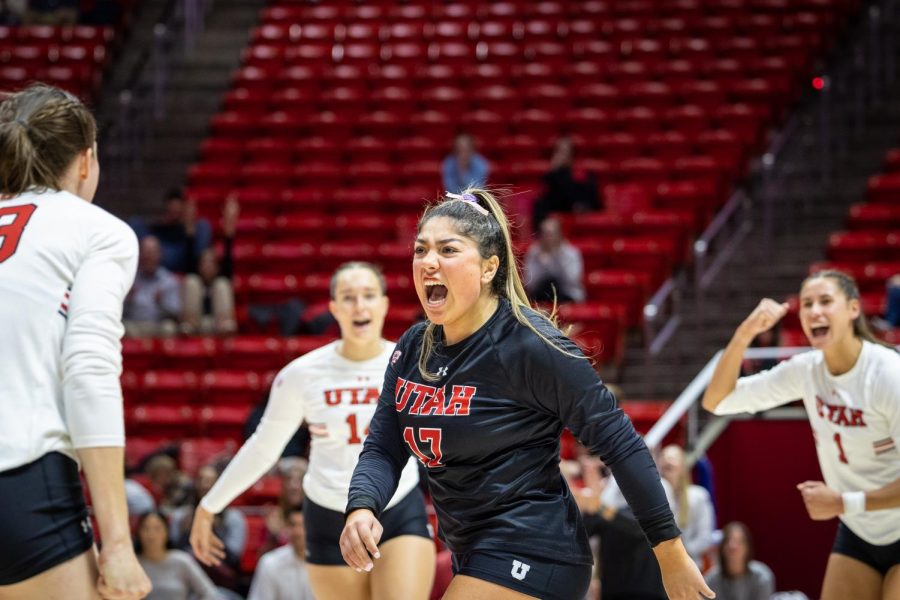Alexander: Utahns Need Free Internet Access
Internet 2021 (Photo by Hailey Danielson | The Daily Utah Chronicle)
April 20, 2021
The pandemic’s grasp on the United States has offered us insight into our infrastructure’s failures and instability. Many of our institutions, services and governments have been unable to handle the effects of the virus — which has illuminated the issues within our current systems.
One universal necessity of pandemic life is at-home access to the internet. Last March, when school closures and remote work and learning took rise, internet access was a top priority for Utah school districts and local governments. But after many schools and workplaces have reopened, some Utahns are still struggling to fulfill their work and school needs due to lack of access to the internet. It’s a glaring issue that reflects Utah’s failures in technological infrastructure. While there’s a whole host of issues that our leaders are trying to fix amid this pandemic, expanding free internet access for poor and rural Utah communities is an urgent necessity.
Because the internet is so vital to daily life, Utah should make broadband accessible statewide. Broadband offers incredibly high-speed internet, secure and safe connections and can support a wide range of devices. Its many advantages would help residents in rural and poor communities connect to the internet in many areas — especially where Wi-Fi struggles with connection stability. This fast-paced internet should be accessible to every person in Utah. Businesses, families and students all need fast internet to thrive. In order for residents to succeed in work and at school, Utah needs to invest in broadband internet and make it accessible and free for all Utahns.
Consider Riley and Nisa Coronado. As public school students, both of them rely on remote learning, which is hindering their education just like other Utah students. For the Coronado siblings, for whom free internet is hard to come by during the pandemic, it’s difficult to access the internet to complete assignments. Even when schools reopen to fully in-person classes, the need for remote learning will still be present through winter breaks and future quarantines. Currently, a lot of teachers assign homework digitally, so access to the internet will remain a priority for students.
In an interview, Nisa Coronado said, “We’re under the poverty line so I know a lot of students at my school don’t have internet.” Because not all families have equal access to the internet, poor students and students of color are disproportionately unable to fulfill and acquire the schooling that is guaranteed for them. In the U.S. no child can be legally denied equal access to education, and with students facing this disparity, the state should take action to help provide internet for students and families who need it.
If internet access is required to complete schooling and work, but residents are unable to pay for this necessity, then the state should be allocating funds and resources to aiding Utahns to fulfill their needs. By providing free, widely accessible broadband internet to Utah residents, the state can help students and families return to normalcy and get back on their feet towards successful completion of work for jobs and classes. We shouldn’t be leaving this burden to school districts — they’re chronically underfunded and already stretched thin in their efforts to accommodate students’ needs. In this pandemic, some school funds have already been allocated to safety measures to keep schools open and functioning.
Utah leaders need to adjust their priorities and start assisting Utah residents. Expanding internet access for poor and rural communities, understanding individual school and student technology needs and improving access to resources for all students and families should be top priorities for the state government. Our inadequate technological infrastructure is holding back Utah residents, and even after the pandemic, the need for broadband internet will still persist until the state addresses the issue. Students like the Coronados shouldn’t be left behind because our state fails to provide them with equal opportunities and access to basic education.









